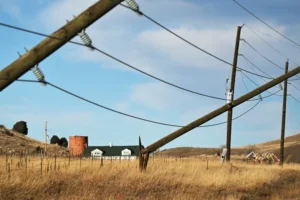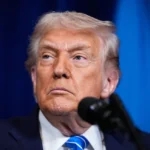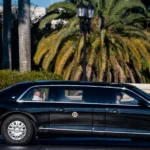University of Wyoming Implements New Principles for Free Expression
Adoption of principles coincides with debate over free speech on college campuses
- Published In: Other News & Features
- Last Updated: Dec 18, 2023

A University of Wyoming working group developed recommendations to implement new principles of free expression on campus. (Courtesy photo via screenshot of “UW Freedom of Expression Working Group Final Report”)
By Shen Wu Tan
Special to the Wyoming Truth
The University of Wyoming (UW) adopted new guiding principles for free expression earlier this month, as colleges nationwide are embroiled in conflicts over First Amendment rights.
The UW principles statement lists civil discourse, constructive dialogue, academic and intellectual freedom, freedom of expression and institutional neutrality as critical to uphold within a college setting. A free expression working group also outlined ways to put the principles into practice.
With the help of UW President Ed Seidel, Martha McCaughey, an adjunct professor in the criminal justice and sociology department, will spearhead the effort to implement the group’s recommendations.
“In order for the university to be a trusted institution, members of the public must be assured that the university’s administrators, staff and faculty proceed with integrity to pursue the mission, without being expected to bend their work to suit partisan interests or demands,” McCaughey told the Wyoming Truth. “Our principles remind everyone that the university performs for the betterment of the state and the world when all proceed with great respect for free and open scholarly inquiry and the open and constructive exchange of ideas.”
However, free expression has its legal limitations, such as obscene and defamatory comments, discriminatory harassment, unjustifiable invasion of privacy, encouragement of lawless action and infringement of others’ rights to free expression, per the principles statement.

The new principles come amid debate about the limitations of free speech on college campuses following the congressional hearing testimonies of the presidents of Harvard University, MIT and University of Pennsylvania on antisemitism and calls for genocide in Israel.
Some of the working group’s recommendations to carry out the principles include skills-based training in constructive dialogue and civil discourse; a “focal point to coordinate,” such as a nonpartisan free expression center for initiatives; and resources for the campus community about how to handle difficult conversations on controversial issues.
“University leaders must remain steadfast in their commitment to free speech, open debate and peaceful dissent on campus,” said Antonio Serrano, advocacy director for the American Civil Liberties Union of Wyoming, describing the principles as the “bedrock of academic freedom” at all institutions of higher learning.
He added, “While one group is at the center of such affronts today, other students, groups and speech could face similar attacks tomorrow. Restricting speech may seem like an attractive option for college administrators to quell campus tensions. But efforts to censor speech often prove counterproductive and undermine the very mission of the university.”
A spring forum is scheduled for UW staff, students and faculty to discuss the principles.
The working group, formed last December, wrapped up its work at the end of spring 2023 semester. Along with the spring forum, there also will be a professional development group where staff and faculty can discuss the principles and their potential implications. McCaughey hopes to convene a group of students to talk about the principles and ways to practice constructive dialogue as well.
In addition to McCaughey, other working group members included Nevin Aiken, Vladimir Alvarado, Christi Boggs, Bradley Bonner, Allison Brown, Kevin Carman, Casey Frome, Zebadiah Hall, Mollie Roselle Hand, Stephen Feldman, Janice Grover, Jennifer Harmon, Tammy Heise, Catherine Johnson, Daniel Laughlin, Ryan O’Neil and Gabe Saint.
The adoption of the new free expression principles trails a district court decision in August that granted a preliminary injunction mandating that UW allow Todd Schmidt to table on campus after suspending his tabling privileges for a year. Last December, Schmidt posted a sign in the student union challenging the gender of Artemis Langford, a transgender woman and Kappa Kappa Gamma sorority member.
Schmidt then filed a lawsuit and requested a preliminary injunction against the school. In response, U.S. District Judge Nancy Freudenthal ruled that UW infringed upon Schmidt’s First Amendment rights and that his public expression about a transgender UW student did not meet the definition of illegal harassment.
Although the university opted to not challenge the preliminary injunction, the motive to suspend Schmidt’s tabling privileges was “to protect our students,” Seidel said in a September message.
“We will be watching closely to make sure that Schmidt’s speech — and that of others — does not go beyond the legal bounds recognized in this ruling and established in decades of case law,” Seidel stated.
He added the university will continue to allow a diverse range of events and speakers on campus even if some groups and individuals criticize UW for permitting such activities, noting the institution “must provide access to its campus without censoring certain groups.”













